Speaker
Description
Organic technologies are of active scientific interest due to their tuneable, scalable, and cost-effective nature. I will present radiation sensors based on organic semiconductor technology, particularly applications related to detection of hadronic radiation consisting of α radiation and thermal and fast neutrons. Neutron detection is useful in various fields, from fundamental particle and atomic physics research to the medical field and nuclear security portal monitors.
These organic sensors focus on NDI-type organic polymers including a novel material with carborane, a polyhedral cluster of carbon, boron, and hydrogen, directly incorporated in the molecular backbone ($o$CbT$_{2}$-NDI), sensitising to thermal neutrons via the boron neutron capture process. A comparison will be made with a similar polymer (PNDI(2OD)2T) with homogeneously dispersed boron carbide (B$_{4}$C) nanoparticles, and a control sensor without any boron which is sensitive to more energetic fast neutrons.
Beyond this, I will present on the expansion of this technology: scaling up the size of the sensors, and creating an array system synchronising multiple detectors to work together. These modes are being probed for the application of making portal radiation detectors at strategic locations (ports, airports, areas of high pedestrian traffic) to identify illicit materials such as weapons grade plutonium and uranium.
